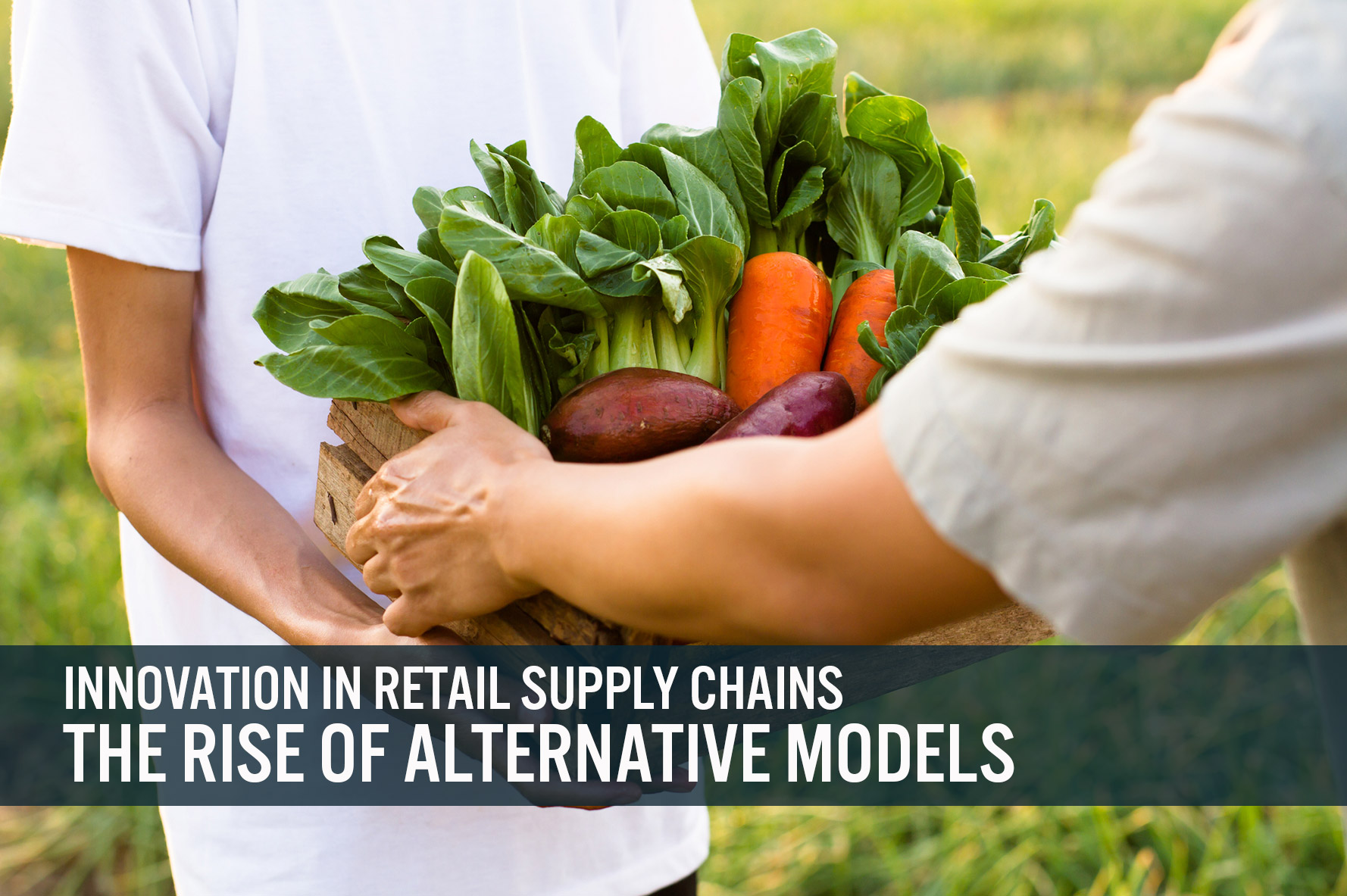Traditional global supply-chain systems, although highly sophisticated, have demonstrated a number of pitfalls—including harm to the planet, hidden costs, lack of transparency, human rights violations and a lack of resilience against disaster, demonstrated most notably through the recent Covid-19 crisis. In this report, we highlight four examples of up-and-coming startups that are challenging the status quo by introducing alternative supply-chain models, such as by leveraging localized manufacturing or eco-friendly products.
Eco-Friendly and Localized Brand
Fem Patch Co. is a feminine health company designed for women by women. It has created affordable and eco-friendly products—from tampons to incontinence products. The company was set to launch in summer 2020, but investors expected this to be delayed when the coronavirus pandemic hit, due to supply-chain disruptions and market instability. However, the co-founders saw that the crisis had caused a shortage of feminine hygiene products and so moved forward with the launch of Fem Patch Co. to ensure that women have access to these products.
Fem Patch Co created a sustainable, local supply chain, for which it partnered only with other women-led businesses. It offers pricing that is comparable, if not cheaper, than most other sustainable feminine health brands, with products typically costing $9.99. Fem Patch Co claims that manufacturing products abroad does not always make the most business sense and often adds hidden costs. The company is aiming to prove that “Made in USA” is more than just patriotism; it is an opportunity to set up sustainable supply-chain models globally.
Circularity and Micro Supply Chains in Agriculture
Microterra, based in Mexico, is another example of a company that is reimagining the supply chain. Its solution transforms wastewater in agriculture into opportunities for businesses, after its founders realized that the current system of feeding fish and animals in agriculture is inefficient and bad for the planet. The company builds onsite water-treatment systems with microalgae that transform wastewater into clean water and a sustainable protein source.
Microterra’s first pilots have been on fish farms in Mexico, separating the waste from the clean water so that the water can be fully recycled in a circular fashion—helping the farms to save on water costs. With the waste being turned into clean protein to feed the fish, the farms are able to sell 100% of their viable product. Microterra can apply this technology to other forms of agriculture, such as cattle and pig farms. The technology offers a cheaper, faster and more resilient supply-chain alternative to existing models.
The recent supply-chain shortages have led to global food anxiety and resulted in some people planting vegetable gardens. Handsome Brook Farms is an example of a hyper-local business model that highlights how to connect micro supply chains across a broader network. Founded in 2007, the company connects small, family farms that practice the highest levels of animal welfare and sustainability through a shared supply-chain logistics system. This allows farmers to sell their products at competitive pricing to industry giants. Although no longer an early-stage startup, Handsome Brook Farms’ model is analogous to blockchain security systems in the sense that the smaller nodes allow for greater resiliency and safety.
Workforce and Automation Co-Evolution
To evolve global supply chains, workforce communities will need to be retrained, supported and scaled. An example of a startup that could help tackle these challenges is Shimmy. This women-owned and -operated fashion-technology company is based in Brooklyn, New York City. Shimmy understands that supply-chain resilience and automation go hand in hand, and the company works towards upskilling and reskilling the workforce to match the pace of new technologies and machines.
Shimmy believes that providing retraining encourages company loyalty and fosters team members’ understanding of how to help the business grow from the bottom up. Shimmy Upskill is a multilingual application that teaches new job skills to garment workers through games, regardless of their previous education levels. This helps apparel brands and manufacturers to shorten lead times and improve product quality. In its first pilots, Shimmy worked with seamstresses in Bangladesh, helping them to increase their wages by increasing their education in making garments and fixing the latest machines in apparel manufacturing.
Industry and Startup Collaboration
For companies with longstanding and entrenched global supply chains, changes can seem daunting. However, there are many ways in which industry giants can engage with startups to improve efficiencies an sustainability, as well as to realize cost savings. Some companies are investing in strong pilot programs to work with rising startups that can support supply-chain evolution; others are investing in a broad portfolio of startups and acquiring them as they grow. For example, Adidas’ partnership with Evernu, a textile startup, is helping to support its transition to a cleaner supply chain for its product line.
The companies that we have profiled here are a sample of the kinds of innovative firms that promise new approaches to supply chains—and that established brands and retailers can partner with to explore new ways of working.
